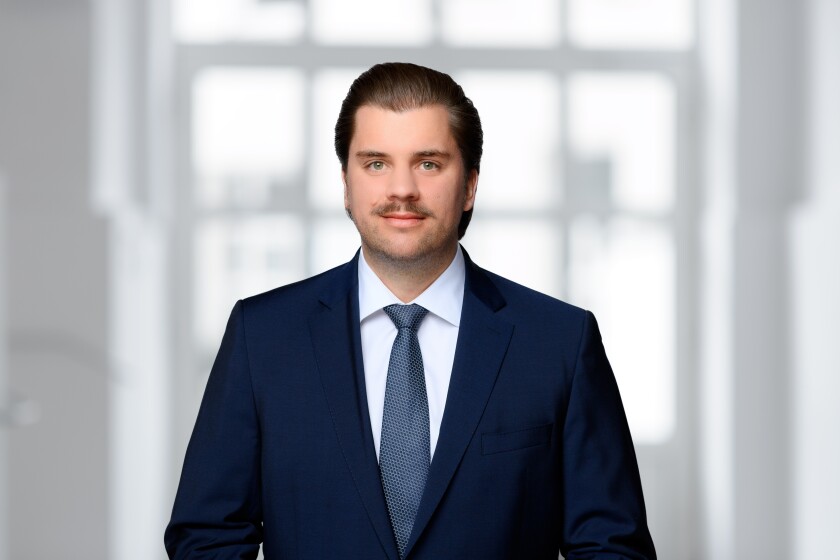Welcome to the latest instalment of Managing IP’s ‘Five minutes with’ series, where we learn more about IP practitioners on a personal as well as a professional level. This time, we have Martin Wintermeier, partner at Twainscore in Germany.
Someone asks you at a party what you do for a living. What do you say?
I am a lawyer.
Talk us through a typical working day.
When I don’t have to travel for a court hearing at one of the non-Munich venues, the day usually starts with having breakfast with my two daughters while my wife is already owning the day.
I very much enjoy the morning drives to work, during which I have the first calls, either with clients or with colleagues, to talk through the day’s tasks. When I come to the office, I am normally briefed by my assistant about open issues or urgent matters on my desk, which I handle first. During the office day, my work is a mixture of (online) meetings, drafting and reviewing drafts of court briefs, as well as discussing cases and legal issues with the team. I very much enjoy our team lunch, which takes place 3-4 days a week, even in times of exceptionally high workload, and which is a pleasant break during the day.
I usually leave the office at around 9pm. After returning home, I regularly handle some organisational firm matters before enjoying some quality time with my wife.
What are you working on at the moment?
Several patent infringement, entitlement, and validity cases. However, I always try to keep a mixture with less cumbersome matters like e.g an unfair competition or trademark preliminary injunction. Besides, the days are always good for putting out fires that may suddenly arise for our clients or handling the onboarding process for incoming new cases.
Does one big piece of work usually take priority or are you juggling multiple things?
We are service providers. Each case that is accepted by our firm has priority. However, due to the high number of pending court cases, it never gets boring, and we are all skilled jugglers.
What is the most exciting aspect of your role and what is the most stressful?
Working and being challenged in a deadline-driven, professional but contentious environment, including direct confrontation with the opponents and their lawyers in court, is stressful in a positive way and therefore very exciting.
In IP we are lucky to see a high degree of specialisation with the judges and our opposing colleagues, which makes arguing even more fun. That is why I love being active in court. Negative stress is always around us, but I don’t see any benefit in overthinking my personal stress level.
Tell us the key characteristics that make a successful IP lawyer/practitioner.
It is hardly possible to measure success because it is highly subjective.
In my opinion, a successful IP lawyer should be doing this with fun, curiosity, and creativity. An outstanding legal foundation is a given prerequisite for us.
An ability to quickly identify the relevant issues of a matter helps a lot, both to further process the case from a legal perspective as well as from a factual perspective.
In direction to the client, a successful lawyer should be ready to take responsibility for advice given so that the client can follow the lawyer’s advice with a good feeling. A lawyer should be an enabler and not a disabler. However, if something does not work out in the first place, this is also important advice for the client, even though this may irritate the client or cause a loss of profit for the lawyer.
In direction to the opponent, a successful lawyer, in my opinion, never underestimates the opposing colleague.
What is the most common misconception about IP?
The mere IP ownership, because owning IP often doesn’t make a difference, enforcing IP always does.
What or who inspires you?
What: Nature in all its facets.
Who: Irrespective of it being a personal or professional situation, it is people who do not back down when the going gets tough.
If you weren’t in IP, what would you be doing?
I just very recently had a chat about that with one very good white collar crime lawyer colleague with whom we are regularly working on trade secret infringement cases. He confirmed my feeling that being a criminal defence lawyer in complex cases could also be a fun job, maybe with a specialisation in tax law.
If it wasn’t law, I would be an animal researcher.
Any advice you would give your younger self?
Nothing is ever as bad as it seems.
What is your motto in life?
It is always worth fighting.










